It is an utterly unique experience to stroll along the beach and see sea lions playfully barking with their mothers, completely unconcerned about your presence. The presence of humans is not a problem on the path leading down to the beach at Seymour Island. Blue-footed Boobies and frigatebirds are both loudly courting each other.
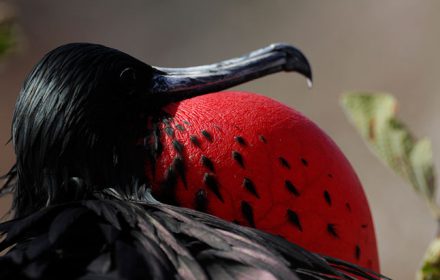
The Galapagos Islands are still as enchanting today as they were when Charles Darwin first visited them on HMS Beagle, in 1835. Darwin's theory of evolution was based on the unique endemic species of the Galapagos Islands, which were isolated from the mainland.
The islands have a high concentration of life due to the shallow, nutrient-rich waters around the volcanic atolls. This area is supplied with a combination of warm and cold currents, which creates a safe haven for many migratory ocean creatures such as leatherback turtles and scalloped hammerhead sharks.
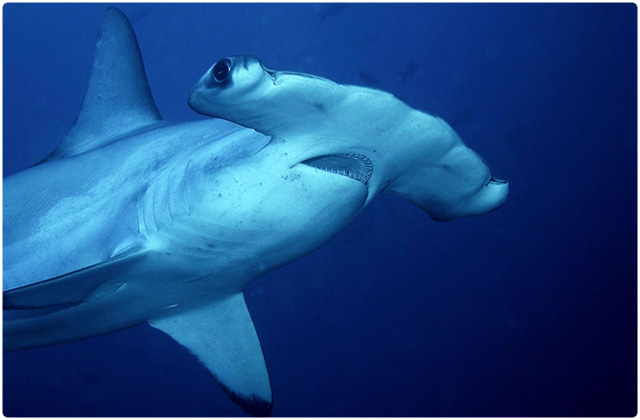
However, this also makes the Ecuadorian archipelago an attractive location for foreign fishing fleets, who operate just beyond the borders of Ecuador's territorial waters. These fleets consist of almost 250 vessels, mostly Chinese-flagged, including large fishing boats and refrigerated container ships. They fish for thousands of tons of squid and fish and have spent an astonishing 73,000 hours fishing every month.
Ecuadorian boats also visit the Galapagos Marine Reserve, where they float thousands of FADs. Conservationists are warning that excessive fishing and bycatch, including sharks, is threatening marine life on the world-renowned islands.
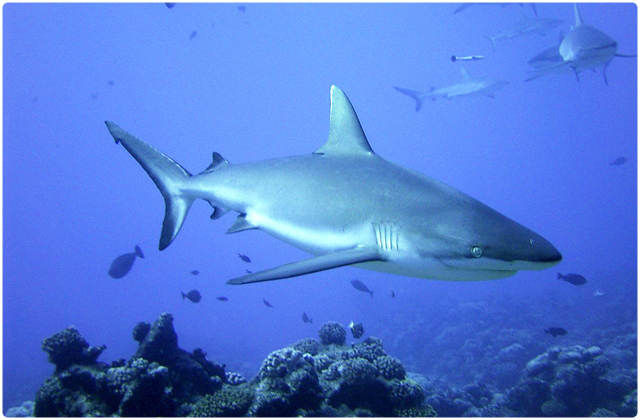
They have put forward a proposal to expand the Galapagos Marine Reserve, encircling it with a scarf-like swathes of ocean protected from the east, north and south.
According to The Guardian, Lenín Moreno, the president of Ecuador, has expressed his support for the proposal. He stated that it reflects his government's dedication to protecting the environment and preserving the Galápagos Islands, which is consistent with his commitments made during the COP25 UN climate change conference in 2019.
Several conservation groups have welcomed the plan, with Matt Rand, director of the Pew Bertarelli Ocean Legacy project, stating that it is the first intelligent proposal that benefits both fishermen and biodiversity while also reducing the impact of climate change.
Not everyone is in agreement. Moreno, who has not approved the plan, would have extended the protected marine area to more than 3 times its current size, or 445 953 sq km.
The new law would prohibit larger Ecuadorian tuna boats from fishing in three quarters of the exclusive economic zone around the island archipelago, which extends for 200 nautical mile. A special exception will be made for the south-west quarter of the archipelago's exclusive economic zone, where "responsible" fishing would be allowed.
According to Luigi Benincasa, the executive director of Atunec, Ecuador's tuna fishing association, the proposed plan would unfairly punish local fishermen. He explains that they would lose about one-third of their catch, which is currently obtained exclusively within Ecuador's fishing zone, and questions how this would be beneficial for them.
Benincasa also argues that fishing on the western side of the archipelago, which is located approximately 620 miles (1,000km) from continental Ecuador, would have a negative impact on profits during a time of economic hardship. He highlights that the tuna industry in the Pacific port of Manta, which employs up to 200,000 individuals, constitutes the vast majority of Ecuador's $1.6bn (£1.2bn) fishing industry.
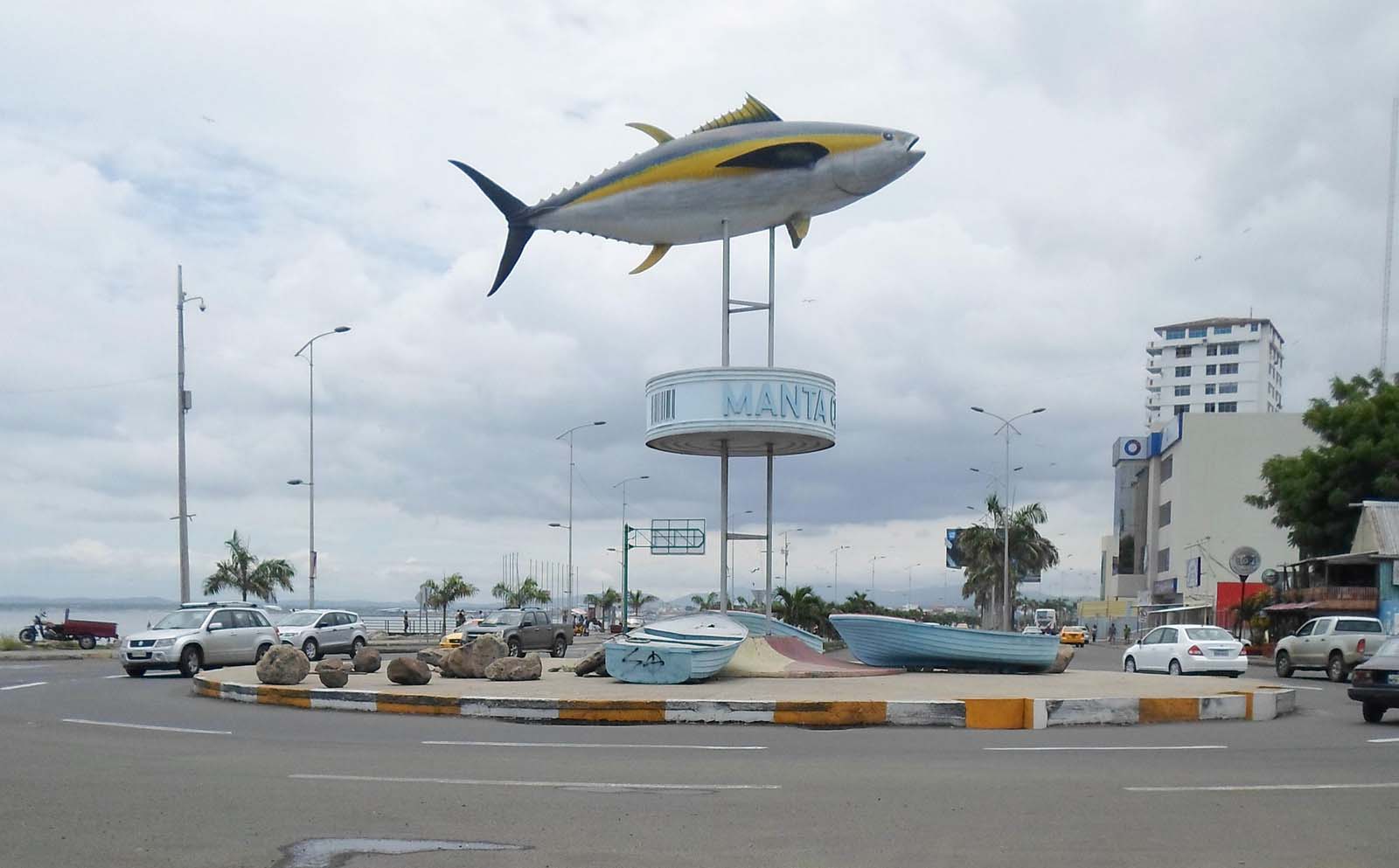
Benincasa further explains that if the proposed plan is implemented, local fishermen would need to travel much further to seek fishing grounds, which would result in greater fuel consumption and competition with international fleets. Currently, Ecuador has the largest and most productive tuna fleet in the eastern Pacific region, with over 100 purse-seine net tuna fishing boats and nearly as many long-liners.
The Galapagos Marine Reserve was established in 1998 and was the world's second-largest marine reserve. It is now number 33 and outpaced in terms of size and ambitions by South American countries such as Chile which has created the Rapa Nui Marine Reserve around Easter Island , covering 740,000 square kilometers. Chile also promised to protect over 40% of their total marine territory.
Eliecer Cruz is the leader of Mas Galapagos - a local initiative that aims to expand the reserve. He says Ecuador's fleet of tuna fishermen and its size have more than doubled since then. In the exclusive economic zone of the Galapagos Islands, research shows that fishing productivity has increased 104% in this century.
Since 1998, industrial fishing, which has increased, has led to the listing of whale sharks, leatherback turtles, and waved albatrosses as critical endangered species on IUCN's red list. The 14 species of marine migrants found in the waters around the islands, including Galapagos sea lions and Galapagos Fur Seals, have seen their conservation status deteriorate over the last 20 years. The waved albatross' range extends from southern Chile to the island of Espanola, but they only nest there.
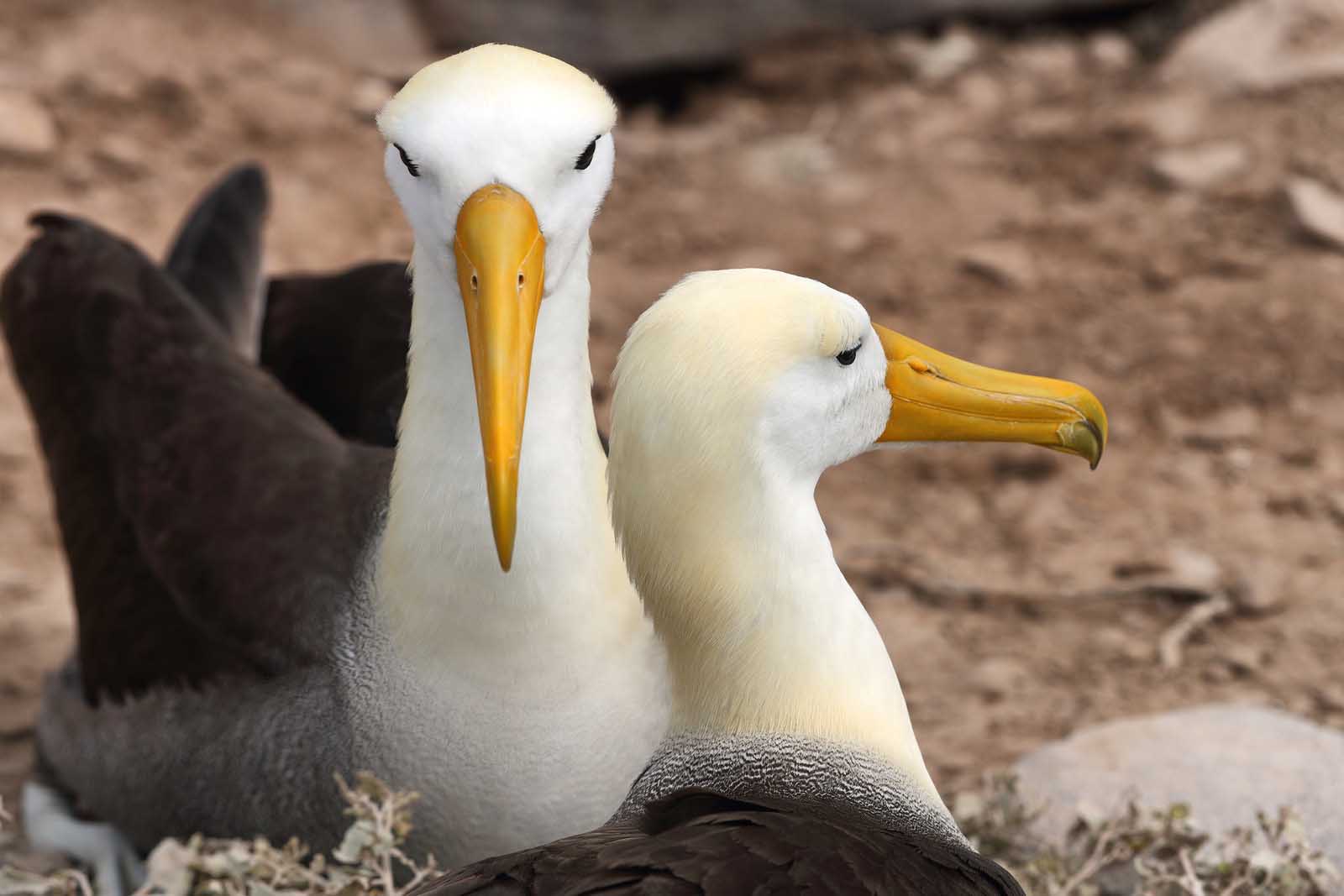
Although only small-scale fishing is permitted within the marine reserve, larger vessels are able to circumvent this restriction by enticing fish outside the protected area using FADs. Locally referred to as "plantados," these devices are designed to catch tuna, but they also trap other pelagic fish such as shark, sailfish, and marlin, as well as attracting sea lions, dolphins, and turtles before drifting out of the marine park.
According to Cruz, these "plantados" continue to enter the reserve despite the ban. He notes that the larger fishing vessels, which can weigh between 1,200 and 2,000 tonnes, can deploy as many as 500 of these devices.
Walter Borbor is an artisanal tuna fisherman on Santa Cruz Island who has encountered many floating fish traps. These are simply wooden rafts that have GPS trackers and nets dangling down up to 100 meters.
Borbor, shouting over the sound of his outboard motor on an eight-metre fibreglass vessel, said: "The bigger boats will throw the fish outside of the reserve because they know there are endless currents which carry the fish through the area and back again. This attracts the larger fish."
He said: "We have collected 30 Plantados .. We use the nets for hammocks and to build chicken coops." The diminutive fisherman, who was pulling up a yellowfin tuna that was thrashing around in the water, said he had to make longer trips fishing for smaller catches.
Borbor stated that the presence of numerous industrial boats around the islands hinders the migration of pelagic fish, which come to the area to breed and feed.
The Galápagos governing council's president, Norman Wray, commented that the spillover effect demonstrates the remarkable effectiveness of the marine reserve. However, Wray believes that it is necessary to enlarge the reserve to improve conservation efforts.
Wray says that the rich fish population has attracted a lot of pressure from not only the national fleet, but also from foreign vessels which are fishing intensively on the edges of the exclusion zones.
Moreno will have to decide if he wants to expand the Reserve by signing an executive order before his departure on 24th May.
Juan Cárdenas, a member of the committee, expressed his support for the proposal to expand the marine reserve due to the Galápagos Islands' status as a world heritage site. He acknowledged the concerns of the fishermen but believed that the interests of the nation as a whole should be prioritized.
The powerful fishing industry will exert influence over Moreno, and whoever is the next president of the country. Benincasa from the tuna sector argued that Ecuador, as a developing nation, could not afford more ocean for conservation. He said, "We shouldn’t be so foolish."
Ecuador signed the Global Ocean Alliance to support the UK's 30 by 30, an international initiative to protect 30% of oceans in marine protected areas by 2030. About 13% Ecuador's water has been protected so far.
Conservationists are hoping that Moreno will change his mind if there is more international support to the plan of expanding the Galapagos Marine Reserve.
Cruz said that it would be a great legacy to leave behind.